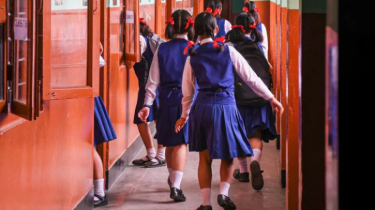Indian Lawyer Mounts Legal Challenge Over Criminalizing Teen Consensual Sex

Published : 00:45, 2 August 2025
An Indian woman lawyer has launched a legal challenge seeking to decriminalize consensual sexual activity between teenagers aged 16 to 18, arguing that such relationships should not be treated as criminal offenses under the Protection of Children from Sexual Offences (POCSO) Act. Under current law, any sexual activity involving a person below the age of 18 is automatically classified as statutory rape, regardless of consent.
The petition asserts that this blanket criminalization has led to widespread misuse of the law, particularly in cases involving consensual adolescent relationships, and often results in devastating legal, psychological, and social consequences for the teenagers involved. Despite the fact that nearly 93% of such cases end in acquittal, the trauma caused by police investigations, court appearances, and social stigma remains deeply damaging.
The petitioner points to numerous High Court rulings that have quashed criminal proceedings in cases where the relationship was consensual and between individuals close in age, urging lawmakers to consider legal reform that aligns with evolving social realities and adolescent rights. In response, the Indian government has stated that it does not intend to lower the age of consent from 18, emphasizing the need to protect minors from exploitation. However, it acknowledged that courts may exercise discretion in certain cases involving adolescent romances.
Several High Courts, including those in Delhi, Bombay, Madras, and Karnataka, have increasingly acknowledged that teenage sexuality is a natural part of adolescent development and that criminalising consensual relationships is counterproductive. These courts have highlighted that the POCSO Act was primarily designed to combat child abuse and trafficking, not to police youthful, mutual relationships. Legal experts and child rights advocates have called for the introduction of “Romeo-and-Juliet” clauses in Indian law—provisions common in many countries that prevent criminal prosecution when both individuals are close in age and consent is present.
They also urge the implementation of comprehensive sexuality education and improved access to reproductive healthcare for teenagers. As the case gains attention, it reignites a crucial national conversation around legal reform, adolescent autonomy, and the role of the justice system in addressing social change.
Sources:
Times of India, The Hindu, The Indian Express











